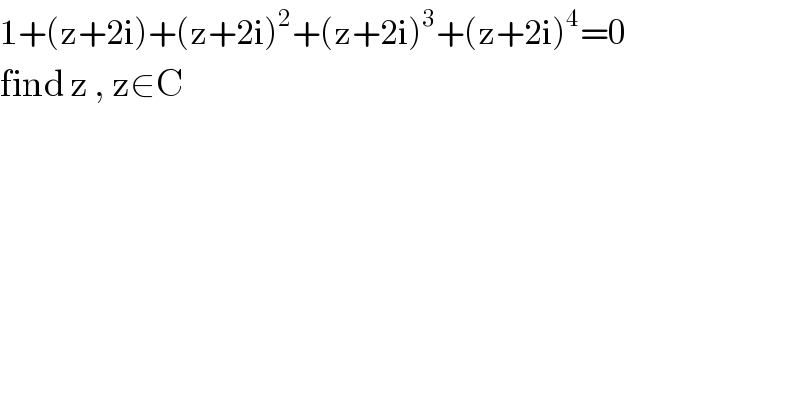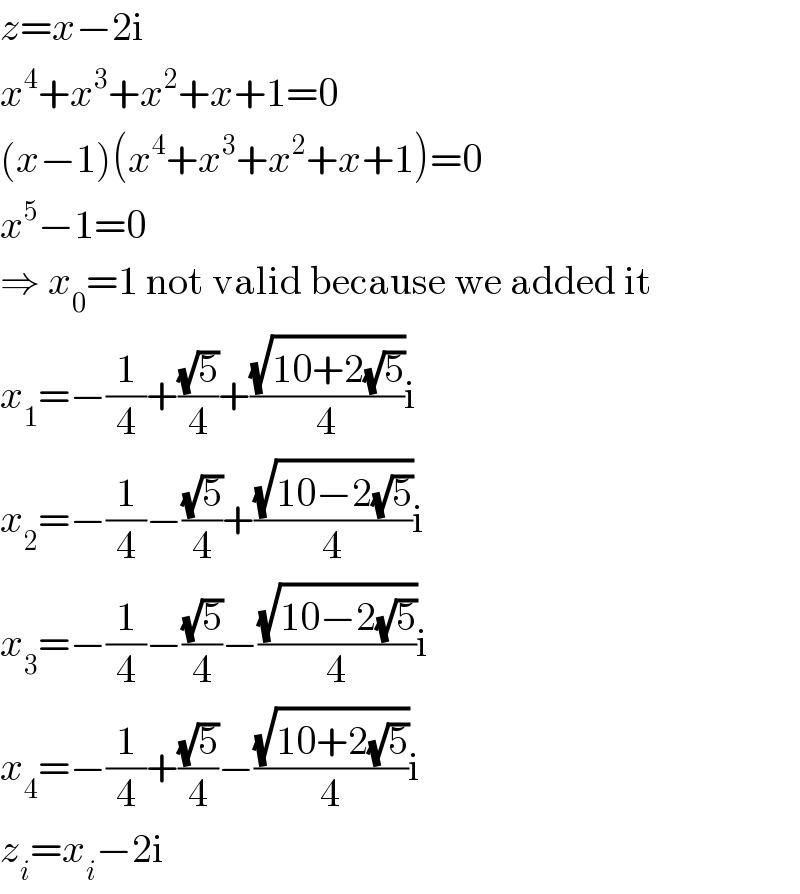
Question and Answers Forum
Question Number 70914 by 20190927 last updated on 09/Oct/19

Commented by mathmax by abdo last updated on 09/Oct/19
![let x=z+2i (e) ⇔1+x+x^2 +x^3 +x^4 =0 ⇒((1−x^5 )/(1−x)) =0 and x≠1 ⇒ x^5 =1 and x≠1 butx^5 =1 ⇒x^5 =e^(i2kπ) ⇒x_k =e^((i2kπ)/5) and k∈[[1,4]] so the roots of (e) are z_k =x_k −2i z_k =e^((i2kπ)/5) −2i =cos(((2kπ)/5))+i(sin(((2kπ)/5))−2)=r_k e^(iθ_k ) with r_k =(√(cos(((2kπ)/5))^2 +(sin(((2kπ)/5))−2)^2 )) and θ_k =arctan{((sin(((2kπ)/5))−2)/(cos(((2kπ)/5))))} 1≤k≤4](Q70929.png)
Commented by 20190927 last updated on 10/Oct/19

Commented by mathmax by abdo last updated on 10/Oct/19

Answered by mind is power last updated on 09/Oct/19

Commented by 20190927 last updated on 10/Oct/19

Commented by mind is power last updated on 10/Oct/19

Answered by MJS last updated on 09/Oct/19

Commented by 20190927 last updated on 10/Oct/19

